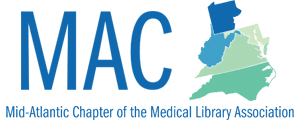Judging Procedures
Applications for the Research and Assessment Grant will be reviewed and judged according to the procedures listed below:
- Judging will be completed by a group of 3 MACMLA members, lead by the Chair of the Research and Assessment Committee. Judges do not necessarily need to be a member of the Research and Assessment Committee.
- Applications missing any of the required items or failing to meet eligibility procedures will be excluded from consideration. At the discretion of the Research & Assessment Committee Chair, applicants who have submitted incomplete applications, will be notified and allowed to make corrections.
- Judges will review applications using the procedures described in the Evaluation Criteria listed below.
- Scores will be added together, and the application(s) with the highest score(s) will be awarded the grant. The Chair will review the judge’s scores and if any glaring discrepancies appear, they will be discussed. If judges are unable to come to an agreement, the Chair will make a final decision.
- At the discretion of the Chair, feedback from the judges can be presented by the Chair to applicants after the process is complete. Any feedback must be given in such a way that each judge’s contributions remain anonymous.
Evaluation Criteria
Applications for the Research and Assessment Grant will be rated on a scale of 1 (poor/strongly disagree) to 5 (very good/strongly agree) for the items listed below:
Applicant(s) Experience and/or Potential
- Education & Experience
- Is the applicant(s)’s education and training relevant to the project they propose to complete?
- Does the applicant(s) have experience that translates to the project? Have they completed a similar project or is it in an area they have been working in?
- Research Competence/Potential
- Have they shown the ability to complete research projects, or do they appear to have qualities that will translate into successfully completing projects?
- Have they completed other large projects (non-research)? Does the work they have completed indicate that they can manage and complete a research project?
Project Design
- Originality
- Will it accomplish something other research has not? Are the concepts original and innovative?
- Importance to the Profession
- Will the project add to the body of knowledge, increase understanding, or improve services in librarianship, information science, or other academic disciplines?
- Will the results be interesting and meaningful? Will results be applicable to other libraries?
- Soundness of Research Design and Detail
- Has appropriate background research been done about the problem and any prior research on the topic?
- Have the methods been fully described? Are the methods practical and logical? Are project objectives realistic and clearly defined?
- Will the methodology achieve the desired outcomes? Have the correct questions been asked? Does the design permit the evaluation of achievement of project goals?
- Project Feasibility
- Is the budget realistic and appropriate to fund the tasks described?
- Have all anticipated expenses been included?
- Is the timeline and sequence of the project realistic and appropriate?
Return to the Research & Assessment Committee Grant Homepage

